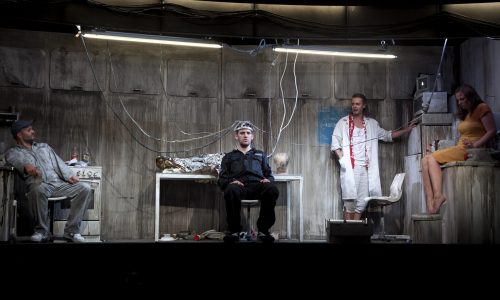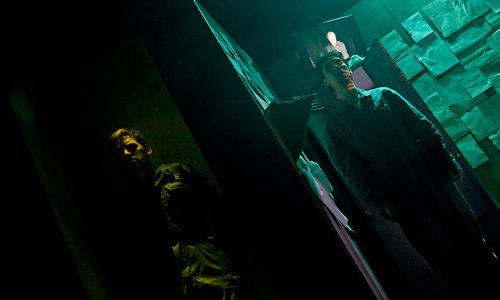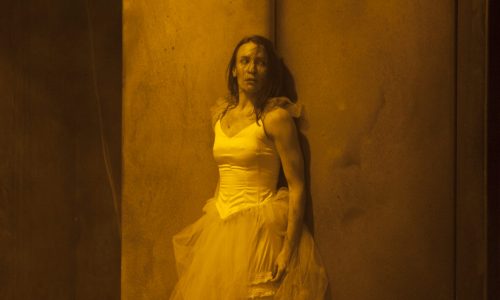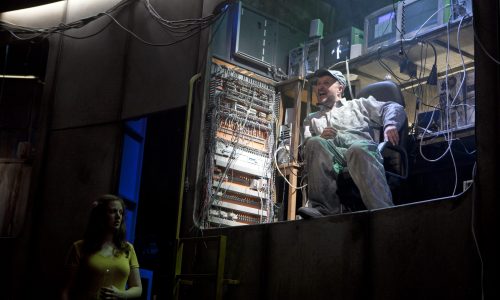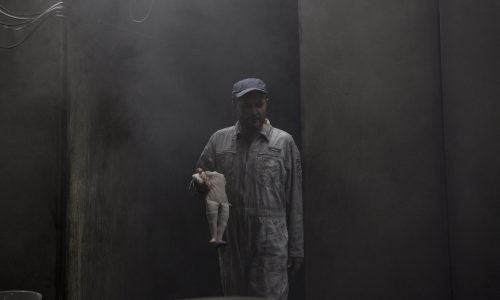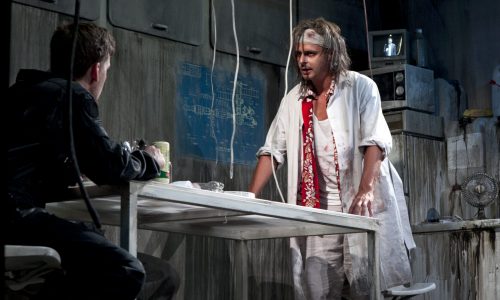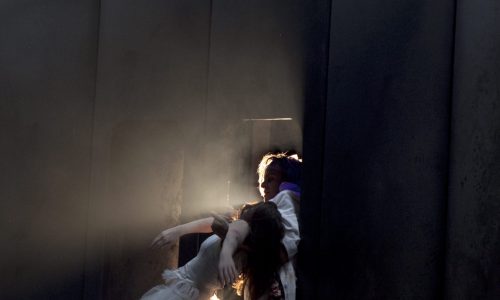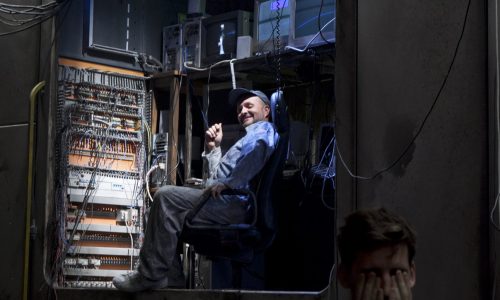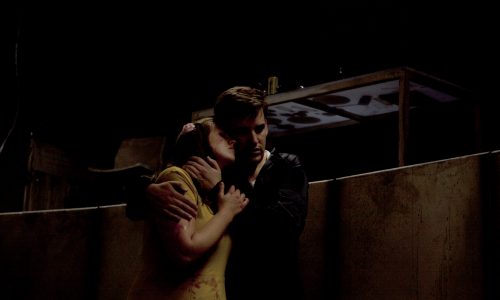We’re not searching for anything except people. We don’t need other worlds. We need mirrors.
Stanisław Lem, Solaris
It was clear from the start that the high-tech ambience of the science-fiction world was not the essential aspect here. The action was set in a space station, however, since this was necessary for the plausibility of the events. One of the work’s major underlying ideas is the confrontation of people with their respective past, their guilty conscience and the repressed thoughts this all leads to. Since the scientists encounter these psychological conditions in a personal level and are thus attacked on an emotional level, they react in ways for which they are neither prepared nor trained. The music fulfills various functions in my opera. Live electronics occupy a special place: the spatial sound simulation developed at IRCAM helps create an element that underscores the surreal character of several scenes. The audience is thus drawn into the sound world of Solaris whenever something happens that is caused by the planets. The audience can distinguish the acoustical contrast between the inexplicable and the confinement of the space station, whose inhabitants can only think and act within very narrow constraints.
Commissioned by GEMA Stiftung Munich 1995
SOLARIS is published by Breitkopf & Härtel.
INSTRUMENTATION
Soli: sop.2bar.bass.speaker
Ensemble: fl.clar – trp.trb – perc(2) – pno – va.vc.db
Live-Electronics or CD-feed
Duration: 2 hours
PERFORMANCES
- Munich Biennale, world première 4 Dec. 1996, cond: Peter Rundel, stage director: Anja Sündermann, stage design: Eberhard Matthies, costume design: Renate Schmitzer
- Television Production of Munich Biennale production (Bavarian Radio, BR) 1996
- Bremer Theater (Spielstätte Concordia), première 8 November 2003, cond: Stefan Klingele, stage director: Freo Majer, stage design: Silke Kosbü, Jan Meyer, costumes: Silke Kosbü,
- Bavarian Theatre Academy August Everding, première 4 Dec. 2013, cond: Konstantia Gourzi, stage director: Balázs Kovalik, stage design: Alena Georgi, costume design: Theresa Scheitzenhammer
- Landestheater (Black Box) Linz, Austria, première 17 Sept. 2016, cond: Daniel Linton-France|Daniel Spaw, stage director: Hermann Schneider, stage & costume design, video: Falko Herold
- Saarländisches Staatstheater Saarbrücken, première 8 March 2018 (co-production with Landestheater Linz), cond: Christopher Ward
TRAILER
rEVIEWS
“… Es ist Musik aus der Tiefe des Alls, schafft die Atmosphäre von fernen Welten, dringt aber auch und vor allem in die Tiefe der menschlichen Seele. Es gibt Echoklänge, es gibt Sequenzen Wiederholungen, es gibt spiralartige Drehungen, die Musik hat aber auch Aufruf- und Aufbegehrcharakter, sie hat mechanische, aber auch lyrische Momente. Man kann fast von unterschiedlichen Aggregatzuständen des musikalischen Material sprechen. “
“… It is music from the depths of outer space, creates the atmosphere of distant worlds, but also and above all penetrates into the depths of the human soul. There are echo sounds, there are sequences and repetitions, there are spiral-like turns, but the music also has the character of a call to action and to rebellion, it has mechanical, but also lyrical moments. One can almost speak of different aggregate states of the musical material.”
Friedrich Spangemacher, Opus Kulturmagazin
“… Eindrucksvoll gerät die Schlussszene: In absoluter Stille, in gleißendem Licht entschwindet Harey im All. Das Ensemble und der anwesende Komponist konnten sich über viel zustimmenden Beifall für eine herausragende Leistung freuen. Unterm Strich also ein für das Saarland mutiger Theaterabend.”
“…The final scene is impressive: in absolute silence, in glistening light, Harey disappears into the universe. Both the ensemble and the composer, who was present, had reason to be pleased by so much affirmative applause for an outstanding performance. The bottom line is that this was a courageous evening of theater for the Saarland.”
Helmut Fackler, Saarbruecker Zeitung, 9 March 2018
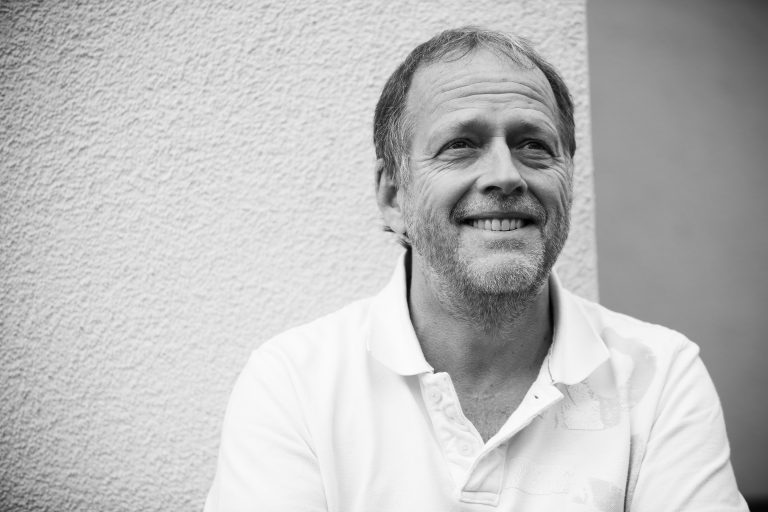
About Michael obst
Michael Obst is a composer, pianist, and teacher. He began his successful composing career with electronic music and subsequently composed works for music theater, film and concert halls. His experience as a pianist with the Ensemble Modern, enriched his understanding of contemporary music. After 25 fulfilling years of teaching, he is now excited to once again concentrate on his own composition projects.
- INFO@MICHAEL-OBST.COM
